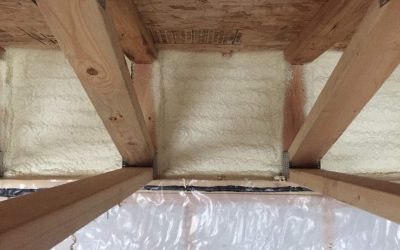Winter in northern Wisconsin means short, cold days—and more than enough time indoors. This particular winter might see many of us staying at home even more than normal, as we navigate our new circumstances of virtual work or schooling.
Since we’ll be indoors more often in the coming months, it’s important to think about air quality and how to keep it as clean and healthy as possible. Today’s blog post will review ways to help ensure your home’s indoor air quality stays healthy all winter long.
Keep It Clean
One of the easiest and most obvious ways to keep indoor air clean is to keep the inside of the home as clean as possible. Frequently sanitizing surfaces, vacuuming, and dusting will help, as will removing shoes at the door. It’s also important to keep smoke out of the home, so if you smoke, it’s best to keep it outdoors.
Some scented products like candles, air fresheners, or cleaning supplies can introduce harsh chemicals into the home. These strongly scented products can cause headaches or even trigger asthma symptoms in some people. Because your windows will be closed and there is likely less indoor air exchange in the winter months, consider opting for unscented cleaning products and reduce the use of scented air fresheners or candles.
You will also want to ensure you are following the recommended schedule for replacing any HVAC filters that your home’s heating system uses. This is one of the easiest (and most frequently overlooked) ways to maintain good indoor air quality.
Seal and Insulate
A properly sealed home will foster better indoor air quality. In addition to higher heating costs, homes with excessive air leakage can also encounter issues with dust, pollen, pollutants, and even pests entering the home.
RVI can help detect and fix air leakage issues, but there are some simple ways that you can check, too. On the home’s exterior, make sure the areas around where vents or pipes enter the home (such as outdoor faucets or dryer vents) are thoroughly sealed. Check for openings or cracks around the foundation and corners of the home, too.
You’ll also want to check weather-stripping and caulking on doors and windows, making sure they all close tightly without any cracks or gaps. If you have storm windows, now is the time to install them.
Insulation is also a factor that can influence air quality. Proper insulation helps keep outdoor air and pollutants from entering the home—not to mention it plays a key role in keeping heating bills low and preventing issues with ice buildup on the exterior.
Control Humidity and Ventilation
Once the house is well-sealed, you will want to ensure that there is still adequate ventilation. This will help mitigate any issues with humidity inside the home. Overly humid indoor air can contribute to the proliferation of dust mites and mold.
When bathing or cooking, run exhaust fans or temporarily crack a window to help humid air escape. Humidity levels between 30% and 50% are ideal, and a simple humidity monitor can help you monitor the levels. If you routinely see that interior humidity levels are too high, contact RVI to have us evaluate your mechanical ventilation.
Call RVI If Your Home’s Not Winter-Ready
Winter in Wisconsin can be tough, and this one will not be an exception. If you’re going to be stuck inside, make sure you and your family will be as comfortable and healthy as possible while you do it.
If you’re concerned about your home’s air quality, contact northern Wisconsin’s air sealing, ventilation, and insulation experts today. Our team would be happy to come take a look at your home and suggest ways that you can improve air quality, conserve energy, and reduce heating costs. Get in touch today!



